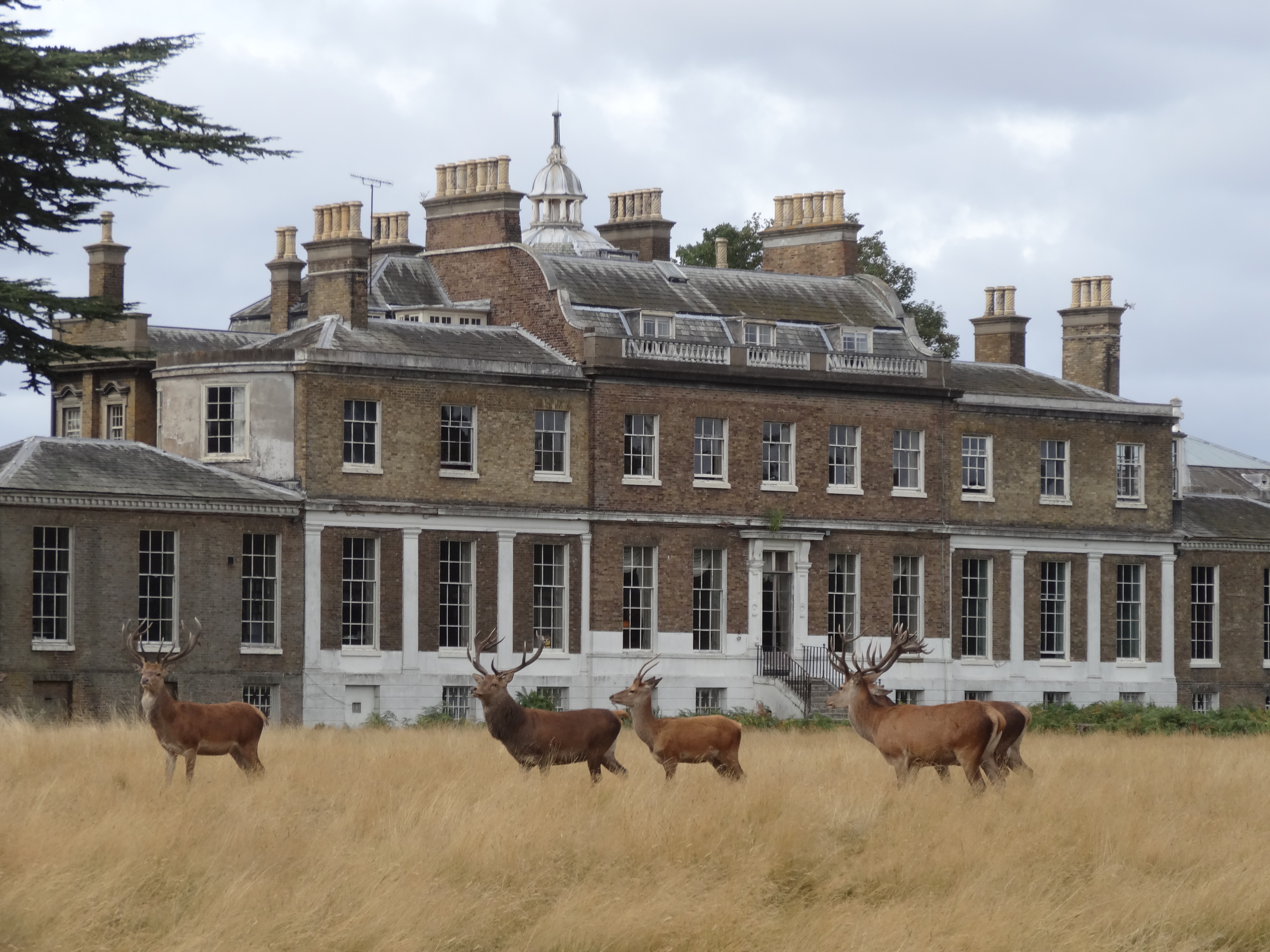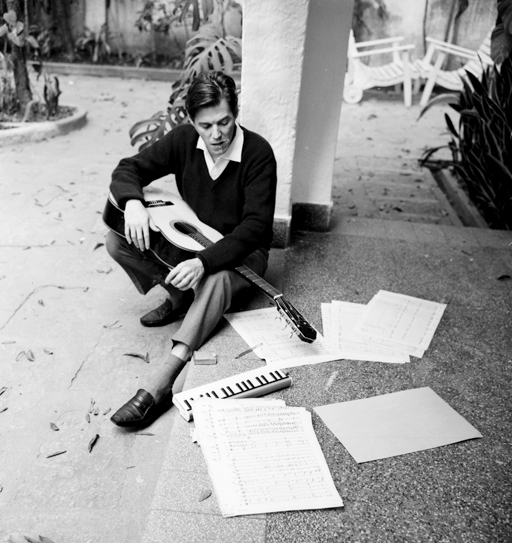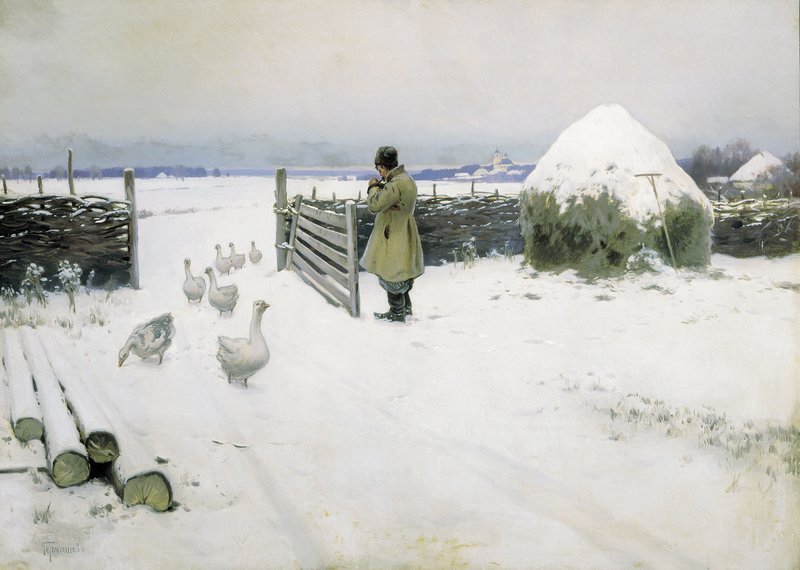Longitude, the story of John Harrison's development of the marine chronometer, featuring Dumbledore and Charles Ryder ...
31 January 2023
Beethoven, Piano Trio Op.1, No.1 E-Flat Major
Amandine Savary, piano, Jack Liebeck, violin, and Christian-Pierre La Marca, cello, performing ...
Map.
Farmer, Map of the State of Michigan and Surrounding Country, 1855
Do yourself a favor and click the link in the title above and be amazed by cartography.
Happy Birthday, Schubert
Melegh, Portrait of a Man (Schubert), 1827
Franz Schubert was born on this day in 1997.
Vladimir Horowitz performs Schubert's Impromptu No. 3 in G-flat major, D. 899 ...
30 January 2023
Art.
Revolutionary War maps range from hasty sketches of roads and paths to elaborate topographical charts depicting elevations, roads, streams and buildings. They were created to support and document military operations as well as to inform the public about the course of the war. These ten reflect the variety of fine maps created during the Revolutionary War and are distinguished for their detail.By the late eighteenth century, military mapmaking had become a fine art. European military engineers were trained as cartographers, and many used pen, ink and watercolor to produce extraordinary manuscript maps. The maps of British engineer Charles Blaskowitz and French engineer Michel Capitaine du Chesnoy are among the finest military maps ever created.American engineers generally lacked the training to produce sophisticated maps. As in other aspects of the art of war, they imitated European models and grew more proficient. By the end of the war, Continental Army engineer Sebastian Bauman was able to create a map of the Siege of Yorktown comparable to the best British and French military maps. Immensely proud of his accomplishment, Bauman oversaw the engraving and publication of the map and its distribution to the American and French officers who purchased it. A pristine copy of the Bauman map is one of the special treasures of the American Revolution Institute.
Anti-Music.
The Beatles are not merely awful. They are so unbelievably horrible, so appallingly unmusical, so dogmatically insensitive to the magic of the art, that they qualify as crowned heads of anti-music.
William F. Buckley Jr.
Phony.
The Crowned Heads of Anti-Music mercifully played their last public performance on this day in 1969.
Forever.
Manet, Luncheon on the Grass, 1862
I WISH LUNCH COULD LAST FOREVER
The place down the block,
The one with no clock
Covert rendezvous with you at the usual time
I savor the scent
Of the fish on the grill
Life's so spicy up on bar-be -q-hill
Lookin' good, you look so fine
Waiter, bring us one more bottle of wine
I wish lunch could last forever
Make the whole day one big afternoon
We'll begin with dessert, a little coconut tart
Tastes as sweet as a piece of your heart
Cafe au lait beneath the Paris moon
Don't hide you eyes just wear your disguise
Brazil's in the air I swear it feels like Mardi Gras time
I savor the scent love that Anik Goutal
As we walk in time to the cathedral bell
I wish lunch could last forever
Make the whole day a first time love affair
We'll begin with a kiss, such a warm place to start
Let me into your life, let me into your heart
Mea culpa, mea culpa carnival's in the air
Jimmy Buffett
Thank you, Dr. Richardson
Discovery.
When we are lost we lose our peripheries. Our thoughts zoom outward and infect the landscape. Years later you can revisit an area and find these thoughts still diseasing the same landscape. It requires a particular kind of behavior to heal the location.
Gullies, hummocks in swamps, swales in the middle of large fields, the small alluvial fan created by feeder creeks, undercut riverbanks, miniature springs, dense thickets on the tops of hills: like Bachelard's attics, seashells, drawers, cellars, these places are a balm to me. Magic (as opposed to the hocus-pocus of miracles) is equated to the quality of attentiveness. Perhaps magic is the quality of attentiveness, the ultimate attentiveness. D. H. Lawrence said that the only aristocracy is that of consciousness. Certain locations seem to demand consciousness. Once I sat still so long I was lucky enough to have a warbler sit on my elbow. Certain the dead also made brief visits.
Perhaps getting lost temporarily destroys the acquisitive sense. We tend to look at earth as an elaborate system out of which we may draw useful information. We “profit” from nature—that is the taught system. The natural world exists so that we may draw conclusions about it. This is the kind of soul-destroying bullshit that drove young people to lysergic acid in the sixties.
One night last summer I was lucky enough to see “time” herself—the moon shooting across the sky, the constellations adjusting wobbily, the sun rising and setting in seconds. I jumped in the river at daylight to come to my senses. Checked a calendar to make sure. No one really wants to be Hölderlin out in the garden with a foot of snow gathered on top of his head.
It is interesting to see the Nature Establishment and the Nature Anti-Establishment suffocating in the same avalanche of tedium and bitterness. There is insufficient street experience to see how bad the bad guys are. They forget it was greed that discovered the country, greed that propelled the westward movement, greed that shipped the blacks, greed that murdered the Indians, greed that daily shits on the heads of those who love nature. Why are we shit upon, they wonder.
I prefer places valued by no one else. The Upper Peninsula has many of these places that lack the drama and differentiation favored by the garden-variety nature buff. I have a personal stump back in a forest clearing. Someone, probably a deer hunter, has left a beer bottle beside the stump. I leave the beer bottle there to conceal the value of the stump.
It took me twenty years to see a timber wolf in the wild. I could have foreshortened this time period by going to Isle Royale or Canada but I wanted to see the wolf as part of a day rather than as a novelty. We startled each other. From this single incident I dreamt I found the wolf with her back broken on a logging road. I knelt down and she went inside me, becoming part of my body and skeleton.
The shock of being lost as a metaphor is the discovery that you've never been “found” in any meaningful sense. When you're lost you know who you are. You're the only one out there. One day I was dressed in camouflage and stalking a small group of sandhill cranes which were feeding on frogs in the pine barrens not far from my cabin. I got within a few yards of them after an hour of crawling. I said “good morning,” a phrase they were unfamiliar with; in fact, they were enraged and threatening. I made a little coyote yodel and they flapped skyward, the wind of their immense wings whooshing around my head.
Jim Harrison, from "Passacaglia on Getting Lost"
29 January 2023
Where's.
Sargent, Cottage at Fairford, Gloucestershire, 1892
The VILLAGE INN
"The village inn, the dear old inn,
So ancient, clean and free from sin,
True centre of our rural life
Where Hodge sits down beside his wife
And talks of Marx and nuclear fission
With all a rustic's intuition.
Ah, more than church or school or hall,
The village inn's the heart of all."
So spake the brewer's P. R. O.,
A man who really ought to know,
For he is paid for saying so.
And then he kindly gave to me
A lovely coloured booklet free.
'Twas full of prose that sang the praise
Of coaching inns in Georgian days,
Showing how public-houses are
More modern than the motor-car,
More English than the weald or wold
And almost equally as old,
And run for love and not for gold
Until I felt a filthy swine
For loathing beer and liking wine,
And rotten to the very core
For thinking village inns a bore,
And village bores more sure to roam
To village inns than stay at home.
And then I thought I must be wrong,
So up I rose and went along
To that old village alehouse where
In neon lights is written "Bear".
Ah, where's the inn that once I knew
With brick and chalky wall
Up which the knobbly pear-tree grew
For fear the place would fall?
Oh, that old pot-house isn't there,
It wasn't worth our while;
You'll find we have rebuilt "Bear"
In Early Georgian style.
But winter jasmine used to cling
With golden stars a-shine
Where rain and wind would wash and swing
The crudely painted sign.
And where's the roof of golden thatch?
The chimney-stack of stone?
The crown-glass panes that used to match
Each sunset with their own?
Oh now the walls are red and smart,
The roof has emerald tiles.
The neon sign's a work of art
And visible for miles.
The bar inside was papered green,
The settles grained like oak,
The only light was paraffin,
The woodfire used to smoke.
And photographs from far and wide
Were hung around the room
The hunt, the church, the football side,
And Kitchener of Khartoum.
Our air-conditioned bars are lined
With washable material,
The stools are steel, the taste refined,
Hygienic and ethereal.
Hurrah, hurrah, for hearts of oak!
Away with inhibitions!
For here's a place to sit and soak
In sanit'ry conditions.
John Betjeman
Churches.
It was through looking at churches that I came to believe in the reason churches were built.
John Betjeman
A Passion For Churches ...
It's always worth a try to get the key, however remote the church. In fact, the remoter, the better.
Blessйd.
TREBETHERICK
We used to picnic where the thrift
Grew deep and tufted to the edge;
We saw the yellow foam flakes drift
In trembling sponges on the ledge
Below us, till the wind would lift
Them up the cliff and o’er the hedge.
Sand in the sandwiches, wasps in the tea,
Sun on our bathing dresses heavy with the wet,
Squelch of the bladder-wrack waiting for the sea,
Fleas around the tamarisk, an early cigarette.
From where the coastguard houses stood
One used to see below the hill,
The lichened branches of a wood
In summer silver cool and still;
And there the Shade of Evil could
Stretch out at us from Shilla Mill.
Thick with sloe and blackberry, uneven in the light,
Lonely round the hedge, the heavy meadow was remote,
The oldest part of Cornwall was the wood as black as night,
And the pheasant and the rabbit lay torn open at the throat.
But when a storm was at its height,
And feathery slate was black in rain,
And tamarisks were hung with light
And golden sand was brown again,
Spring tide and blizzard would unite
And sea come flooding up the lane.
Waves full of treasure then were roaring up the beach,
Ropes round our mackintoshes, waders warm and dry,
We waited for the wreckage to come swirling into reach,
Ralph, Vasey, Alistair, Biddy, John and I.
Then roller into roller curled
And thundered down the rocky bay,
And we were in a water world
Of rain and blizzard, sea and spray,
And one against the other hurled
We struggled round to Greenaway.
Blessйd be St Enodoc, blessйd be the wave,
Blessйd be the springy turf, we pray, pray to thee,
Ask for our children all happy days you gave
To Ralph, Vasey, Alistair, Biddy, John and me.
Sir John Betjeman
Learn.
von Vogelstein, Young Lady with Drawing Utensils, 1816
Cease from practice based on intellectual understanding, pursuing words, and following after speech. Learn the backward step that turns your light inward to illuminate your self. Body and mind of themselves will drop away, and your original face will be manifest.
Dogen
Happy Birthday, Delius
Frederick Delius was born on this day in 1862.
Sir Andrew Davis conducts the BBC Symphony Orchestra in a performance of "Walk to the Paradise Garden" (Note: The Paradise Garden is a tavern, hangout of bohemians, vagabonds, riffraff, and the Dark Fiddler who haunts the children) ...
Happy Birthday, Paine
Government should always be considered as a matter of convenience, not of right.
Thomas Paine, born on this day in 1737, from "A Response to Cato's Fourth through Seventh Letters"
Hearing.
George Orwell, from "Freedom of the Park"
Just read and keep reading.
Preserves.
The physical act of writing, with your own hand, brings words and sentences more sharply before your mind and preserves them better in your memory. To set down your reaction to important words and sentences you have read, and the questions they have raised in your mind, is to preserve those reactions and sharpen those questions.
Mortimer Adler, from "How to Mark a Book"
28 January 2023
Betterment.
Finally, technology put to use for the betterment of man ...
🤩 #FeteDesLumieres 🤩
— Benjamin Badouard (@BBadouard) December 8, 2022
À Lyon ✔️
(son obligatoire) pic.twitter.com/bwzPJLdFXl
Layers.
Chef Bottura's Cacio e Pepe risotto ...
First, he simmers the cheese in water, then refrigerates the mixture until it separates into three distinct layers: protein solids on the bottom, a thick broth in the middle, and a Parmigiano cream on top. The broth is slowly stirred into the risotto, taking the place of chicken stock, while the cream is added toward the end of cooking, giving the risotto a luxurious texture and little need for any additional salt.
For breakfast, I would suggest topping the leftovers with a lightly fried egg.
Menace.
Friedrich, Wanderer Above the Sea of Fog, 1818
Once the government can demand of a publisher the names of the purchasers of his publications, the free press as we know it disappears. Then the spectre of a government agent will look over the shoulder of everyone who reads. The purchase of a book or pamphlet today may result in a subpoena tomorrow. Fear of criticism goes with every person into the bookstall. The subtle, imponderable pressures of the orthodox lay hold. Some will fear to read what is unpopular, what the powers-that-be dislike. When the light of publicity may reach any student, any teacher, inquiry will be discouraged. The books and pamphlets that are critical of the administration, that preach an unpopular policy in domestic or foreign affairs, that are in disrepute in the orthodox school of thought will be suspect and subject to investigation. The press and its readers will pay a heavy price in harassment. But that will be minor in comparison with the menace of [345 U.S. 41, 58] the shadow which government will cast over literature that does not follow the dominant party line. If the lady from Toledo can be required to disclose what she read yesterday and what she will read tomorrow, fear will take the place of freedom in the libraries, book stores, and homes of the land. Through the harassment of hearings, investigations, reports, and subpoenas government will hold a club over speech and over the press.
U.S. Supreme Court Justice William O. Douglas, UNITED STATES v. RUMELY, 345 U.S. 41 (1953)
Just read and keep reading.
Curious.
I almost wish I hadn’t gone down the rabbit hole – and yet – and yet – it’s rather curious, you know, this sort of life!
Lewis Carroll, from Alice’s Adventures in Wonderland
Solution.
In coming to Alaska, McCandless yearned to wander uncharted country, to find a blank spot on the map. In 1992, however, there were no more blank spots on the map—-not in Alaska, not anywhere. But Chris, with his idiosyncratic logic, came up with an elegant solution to this dilemma: He simply got rid of the map. In his own mind, if nowhere else, the terra would thereby remain incognita.
Jon Krakauer, from Into the Wild
Habit.
General Thomas J. "Stonewall" Jackson
Spirits.
Stretton, By the Hearth, 1894
A DROWSY DAY
The air is dark, the sky is gray,
The misty shadows come and go,
And here within my dusky room
Each chair looks ghostly in the gloom.
Outside the rain falls cold and slow —
Half-stinging drops, half-blinding spray.
Each slightest sound is magnified,
For drowsy quiet holds her reign;
The burnt stick in the fireplace breaks,
The nodding cat with start awakes,
And then to sleep drops off again,
Unheeding Towser at her side.
I look far out across the lawn,
Where huddled stand the silly sheep;
My work lies idle at my hands,
My thoughts fly out like scattered strands
Of thread, and on the verge of sleep—
Still half awake — I dream and yawn.
What spirits rise before my eyes!
How various of kind and form!
Sweet memories of days long past,
The dreams of youth that could not last,
Each smiling calm, each raging storm,
That swept across my early skies.
Half seen, the bare, gaunt-fingered boughs
Before my window sweep and sway,
And chafe in tortures of unrest.
My chin sinks down upon my breast;
I cannot work on such a day,
But only sit and dream and drowse.
Paul Laurence Dunbar
27 January 2023
Faith.
It's Holocaust Remembrance Day ...
There's a long road of suffering ahead of you. But don't lose courage. You've already escaped the gravest danger: selection. So now, muster your strength, and don't lose heart. We shall all see the day of liberation. Have faith in life. Above all else, have faith. Drive out despair, and you will keep death away from yourselves. Hell is not for eternity. And now, a prayer - or rather, a piece of advice: let there be comradeship among you. We are all brothers, and we are all suffering the same fate. The same smoke floats over all our heads. Help one another. It is the only way to survive.Elie Wiesel, from Night
Happy Birthday, Mozart
Lange, Mozart, 1782
Elīna Garanča performs "Parto parto ma tu ben mio" from Mozart's La Clemenza di Tito. Sebastian Weigle conducts Staatskapelle Dresden ...
It is a mistake to think that the practice of my art has become easy to me. I assure you, dear friend, no one has given so much care to the study of composition as I. There is scarcely a famous master in music whose works I have not frequently and diligently studied.
Wolfgang Amadeus Mozart, born on this day in 1756.
26 January 2023
Beginning.
First Amendment freedoms are most in danger when the government seeks to control thought or to justify its laws for that impermissible end. The right to think is the beginning of freedom, and speech must be protected from the government because speech is the beginning of thought.
Supreme Court Justice Anthony M. Kennedy, Ashcroft V. Free Speech Coalition (00-795) 198 F.3d 1083, affirmed.
Just read and keep reading.
25 January 2023
Alters.
Claude Monet
Frank Sinatra & Antonio Carlos Jobim, A Bossa-Nova Medley
The lamp is lit a little earlier on snow days ...
Ray Davies, "20th Century Man"
You keep all your smart modern writers
Give me William Shakespeare
You keep all your smart modern painters
I'll take Rembrandt, Titian, da Vinci, and Gainsborough
Give me William Shakespeare
You keep all your smart modern painters
I'll take Rembrandt, Titian, da Vinci, and Gainsborough
It's sandwich time.
Building.
Friedrich, Wanderer Above the Sea of Fog, 1818
Dartmouth Alumni Magazine defines the liberal arts ...
What then, in this context, is the function of the required major if not to learn a specific amount of disciplinarily defined content? It is not—not!—to train in a field that is based on information learned in that major. It is to practice thinking, researching, interpreting, writing, learning and synthesizing within increasingly complex arenas of knowledge. The major is, in a sense, the “thought laboratory.” Working within a defined discipline, with increasingly large and complex data (whether in chemical, historical or philological data), the liberal arts student is challenged to manage, assess and apply increasingly complex ideas and information. Managing and interpreting increasingly complex concepts works the brain, like any muscle, to become stronger and more nimble—that is, smarter. And this is why, if a student in a liberal arts school wants to get the absolute most out of her experience, she is probably better off writing a senior thesis in a discipline rather than double majoring in two closely related disciplines. This is what will push her brain further—make her smarter—and this is the best investment a student can make.So, as parents send their kids off to college, and those same kids try to figure out what they want to study, and as those of us who teach in liberal arts institutions begin talking to those students about the purpose and meaning of the educations they are about to embark upon, we should all keep in mind what our ultimate aim is. It is not vocation training. It is brain training. We are building the brain trust of the future.
Find.
U.S. Supreme Court Justice William O. Douglas, UNITED STATES v. RUMELY, 345 U.S. 41 (1953)
Just read and keep reading.
Opens.
In the point of rest at the center of our being, we encounter a world where all things are at rest in the same way.
Then a tree becomes a mystery, a cloud a revelation, each man a cosmos of whose riches we can only catch glimpses.
The life of simplicity is simple, but it opens to us a book in which we never get beyond the first syllable.
Dag Hammarskjöld
Floor.
Lindsey Graham says you won't find any classified documents at his home, just "Chick-fil-A bags all over the floor" ...
Washington, Jefferson, Lincoln ... they're watching.
Treasures.
Wright, Hampton Court House, 1765
On the following morning, the sun darted his beams from over the hills through the low lattice window. I rose at an early hour, and looked out between the branches of eglantine which overhung the casement. To my surprise Scott was already up and forth, seated on a fragment of stone, and chatting with the workmen employed on the new building. I had supposed, after the time he had wasted upon me yesterday, he would be closely occupied this morning, but he appeared like a man of leisure, who had nothing to do but bask in the sunshine and amuse himself.
I soon dressed myself and joined him. He talked about his proposed plans of Abbotsford; happy would it have been for him could he have contented himself with his delightful little vine-covered cottage, and the simple, yet hearty and hospitable style, in which he lived at the time of my visit. The great pile of Abbotsford, with the huge expense it entailed upon him, of servants, retainers, guests, and baronial style, was a drain upon his purse, a tax upon his exertions, and a weight upon his mind, that finally crushed him.
As yet, however, all was in embryo and perspective, and Scott pleased himself with picturing out his future residence, as he would one of the fanciful creations of his own romances. "It was one of his air castles," he said, "which he was reducing to solid stone and mortar." About the place were strewed various morsels from the ruins of Melrose Abbey, which were to be incorporated in his mansion. He had already constructed out of similar materials a kind of Gothic shrine over a spring, and had surmounted it by a small stone cross.
Among the relics from the Abbey which lay scattered before us, was a most quaint and antique little lion, either of red stone, or painted red, which hit my fancy. I forgot whose cognizance it was; but I shall never forget the delightful observations concerning old Melrose to which it accidentally gave rise. The Abbey was evidently a pile that called up all Scott's poetic and romantic feelings; and one to which he was enthusiastically attached by the most fanciful and delightful of his early associations. He spoke of it, I may say, with affection. "There is no telling," said he, "what treasures are hid in that glorious old pile. It is a famous place for antiquarian plunder; there are such rich bits of old time sculpture for the architect, and old time story for the poet. There is as rare picking in it as a Stilton cheese, and in the same taste—the mouldier the better."
Washington Irving, from Abbotsford and Newstead Abbey
Happy Birthday, Jobim
Antonio Carlos Jobim was born on this day in 1927.
"Aguas de Março" with Elis Regina ...
Good luck getting this one out of your head.
Robert Burns, "A Man's a Man For A' That"
Read by Colin Hay ...
Then let us pray that come it may,As come it will for a’ that,That Sense and Worth, o’er a’ the earthShall bear the gree an’ a’ that.
Happy Birthday, Burns
When chapman billies leave the street,
And drouthy neibors, neibors, meet;
As market days are wearing late,
And folk begin to tak the gate,
While we sit bousing at the nappy,
An' getting fou and unco happy,
We think na on the lang Scots miles,
The mosses, waters, slaps and stiles,
That lie between us and our hame,
Where sits our sulky, sullen dame,
Gathering her brows like gathering storm,
Nursing her wrath to keep it warm.
This truth fand honest Tam o' Shanter,
As he frae Ayr ae night did canter:
(Auld Ayr, wham ne'er a town surpasses,
For honest men and bonie lasses).
O Tam! had'st thou but been sae wise,
As taen thy ain wife Kate's advice!
She tauld thee weel thou was a skellum,
A blethering, blustering, drunken blellum;
That frae November till October,
Ae market-day thou was na sober;
That ilka melder wi' the Miller,
Thou sat as lang as thou had siller;
That ev'ry naig was ca'd a shoe on
The Smith and thee gat roarin' fou on;
That at the Lord's house, ev'n on Sunday,
Thou drank wi' Kirkton Jean till Monday,
She prophesied that late or soon,
Thou wad be found, deep drown'd in Doon,
Or catch'd wi' warlocks in the mirk,
By Alloway's auld, haunted kirk.
Ah, gentle dames! it gars me greet,
To think how mony counsels sweet,
How mony lengthen'd, sage advices,
The husband frae the wife despises!
But to our tale: Ae market night,
Tam had got planted unco right,
Fast by an ingle, bleezing finely,
Wi reaming swats, that drank divinely;
And at his elbow, Souter Johnie,
His ancient, trusty, drougthy crony:
Tam lo'ed him like a very brither;
They had been fou for weeks thegither.
The night drave on wi' sangs an' clatter;
And aye the ale was growing better:
The Landlady and Tam grew gracious,
Wi' favours secret, sweet, and precious:
The Souter tauld his queerest stories;
The Landlord's laugh was ready chorus:
The storm without might rair and rustle,
Tam did na mind the storm a whistle.
Care, mad to see a man sae happy,
E'en drown'd himsel amang the nappy.
As bees flee hame wi' lades o' treasure,
The minutes wing'd their way wi' pleasure:
Kings may be blest, but Tam was glorious,
O'er a' the ills o' life victorious!
But pleasures are like poppies spread,
You seize the flow'r, its bloom is shed;
Or like the snow falls in the river,
A moment white - then melts for ever;
Or like the Borealis race,
That flit ere you can point their place;
Or like the Rainbow's lovely form
Evanishing amid the storm. -
Nae man can tether Time nor Tide,
The hour approaches Tam maun ride;
That hour, o' night's black arch the key-stane,
That dreary hour he mounts his beast in;
And sic a night he taks the road in,
As ne'er poor sinner was abroad in.
The wind blew as 'twad blawn its last;
The rattling showers rose on the blast;
The speedy gleams the darkness swallow'd;
Loud, deep, and lang, the thunder bellow'd:
That night, a child might understand,
The deil had business on his hand.
Weel-mounted on his grey mare, Meg,
A better never lifted leg,
Tam skelpit on thro' dub and mire,
Despising wind, and rain, and fire;
Whiles holding fast his gude blue bonnet,
Whiles crooning o'er some auld Scots sonnet,
Whiles glow'rin round wi' prudent cares,
Lest bogles catch him unawares;
Kirk-Alloway was drawing nigh,
Where ghaists and houlets nightly cry.
By this time he was cross the ford,
Where in the snaw the chapman smoor'd;
And past the birks and meikle stane,
Where drunken Charlie brak's neck-bane;
And thro' the whins, and by the cairn,
Where hunters fand the murder'd bairn;
And near the thorn, aboon the well,
Where Mungo's mither hang'd hersel'.
Before him Doon pours all his floods,
The doubling storm roars thro' the woods,
The lightnings flash from pole to pole,
Near and more near the thunders roll,
When, glimmering thro' the groaning trees,
Kirk-Alloway seem'd in a bleeze,
Thro' ilka bore the beams were glancing,
And loud resounded mirth and dancing.
Inspiring bold John Barleycorn!
What dangers thou canst make us scorn!
Wi' tippenny, we fear nae evil;
Wi' usquabae, we'll face the devil!
The swats sae ream'd in Tammie's noddle,
Fair play, he car'd na deils a boddle,
But Maggie stood, right sair astonish'd,
Till, by the heel and hand admonish'd,
She ventur'd forward on the light;
And, wow! Tam saw an unco sight!
Warlocks and witches in a dance:
Nae cotillon, brent new frae France,
But hornpipes, jigs, strathspeys, and reels,
Put life and mettle in their heels.
A winnock-bunker in the east,
There sat auld Nick, in shape o' beast;
A towzie tyke, black, grim, and large,
To gie them music was his charge:
He screw'd the pipes and gart them skirl,
Till roof and rafters a' did dirl. -
Coffins stood round, like open presses,
That shaw'd the Dead in their last dresses;
And (by some devilish cantraip sleight)
Each in its cauld hand held a light.
By which heroic Tam was able
To note upon the haly table,
A murderer's banes, in gibbet-airns;
Twa span-lang, wee, unchristened bairns;
A thief, new-cutted frae a rape,
Wi' his last gasp his gab did gape;
Five tomahawks, wi' blude red-rusted:
Five scimitars, wi' murder crusted;
A garter which a babe had strangled:
A knife, a father's throat had mangled.
Whom his ain son of life bereft,
The grey-hairs yet stack to the heft;
Wi' mair of horrible and awfu',
Which even to name wad be unlawfu'.
Three lawyers tongues, turned inside oot,
Wi' lies, seamed like a beggars clout,
Three priests hearts, rotten, black as muck,
Lay stinkin, vile in every neuk.
As Tammie glowr'd, amaz'd, and curious,
The mirth and fun grew fast and furious;
The Piper loud and louder blew,
The dancers quick and quicker flew,
They reel'd, they set, they cross'd, they cleekit,
Till ilka carlin swat and reekit,
And coost her duddies to the wark,
And linkit at it in her sark!
Now Tam, O Tam! had they been queans,
A' plump and strapping in their teens!
Their sarks, instead o' creeshie flainen,
Been snaw-white seventeen hunder linen!-
Thir breeks o' mine, my only pair,
That ance were plush o' guid blue hair,
I wad hae gien them off my hurdies,
For ae blink o' the bonie burdies!
But wither'd beldams, auld and droll,
Rigwoodie hags wad spean a foal,
Louping an' flinging on a crummock.
I wonder did na turn thy stomach.
But Tam kent what was what fu' brawlie:
There was ae winsome wench and waulie
That night enlisted in the core,
Lang after ken'd on Carrick shore;
(For mony a beast to dead she shot,
And perish'd mony a bonie boat,
And shook baith meikle corn and bear,
And kept the country-side in fear);
Her cutty sark, o' Paisley harn,
That while a lassie she had worn,
In longitude tho' sorely scanty,
It was her best, and she was vauntie.
Ah! little ken'd thy reverend grannie,
That sark she coft for her wee Nannie,
Wi twa pund Scots ('twas a' her riches),
Wad ever grac'd a dance of witches!
But here my Muse her wing maun cour,
Sic flights are far beyond her power;
To sing how Nannie lap and flang,
(A souple jade she was and strang),
And how Tam stood, like ane bewithc'd,
And thought his very een enrich'd:
Even Satan glowr'd, and fidg'd fu' fain,
And hotch'd and blew wi' might and main:
Till first ae caper, syne anither,
Tam tint his reason a thegither,
And roars out, "Weel done, Cutty-sark!"
And in an instant all was dark:
And scarcely had he Maggie rallied.
When out the hellish legion sallied.
As bees bizz out wi' angry fyke,
When plundering herds assail their byke;
As open pussie's mortal foes,
When, pop! she starts before their nose;
As eager runs the market-crowd,
When "Catch the thief!" resounds aloud;
So Maggie runs, the witches follow,
Wi' mony an eldritch skreich and hollow.
Ah, Tam! Ah, Tam! thou'll get thy fairin!
In hell, they'll roast thee like a herrin!
In vain thy Kate awaits thy comin!
Kate soon will be a woefu' woman!
Now, do thy speedy-utmost, Meg,
And win the key-stone o' the brig;
There, at them thou thy tail may toss,
A running stream they dare na cross.
But ere the keystane she could make,
The fient a tail she had to shake!
For Nannie, far before the rest,
Hard upon noble Maggie prest,
And flew at Tam wi' furious ettle;
But little wist she Maggie's mettle!
Ae spring brought off her master hale,
But left behind her ain grey tail:
The carlin claught her by the rump,
And left poor Maggie scarce a stump.
Now, wha this tale o' truth shall read,
Ilk man and mother's son, take heed:
Whene'er to Drink you are inclin'd,
Or Cutty-sarks rin in your mind,
Think ye may buy the joys o'er dear;
Remember Tam o' Shanter's mare.
Robert Burns, born on this day in 1759
Subscribe to:
Posts (Atom)
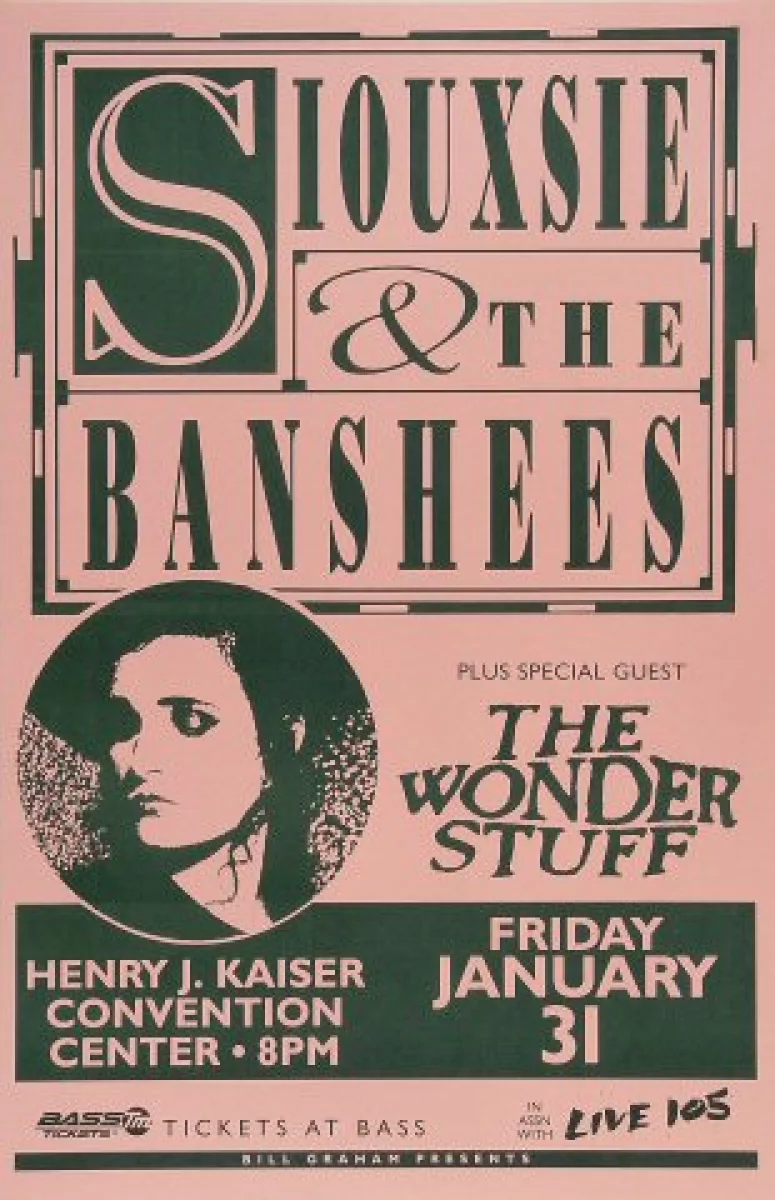


_1827.jpg/483px-Melegh_Portrait_of_a_Man_(Schubert)_1827.jpg?20120303182219)



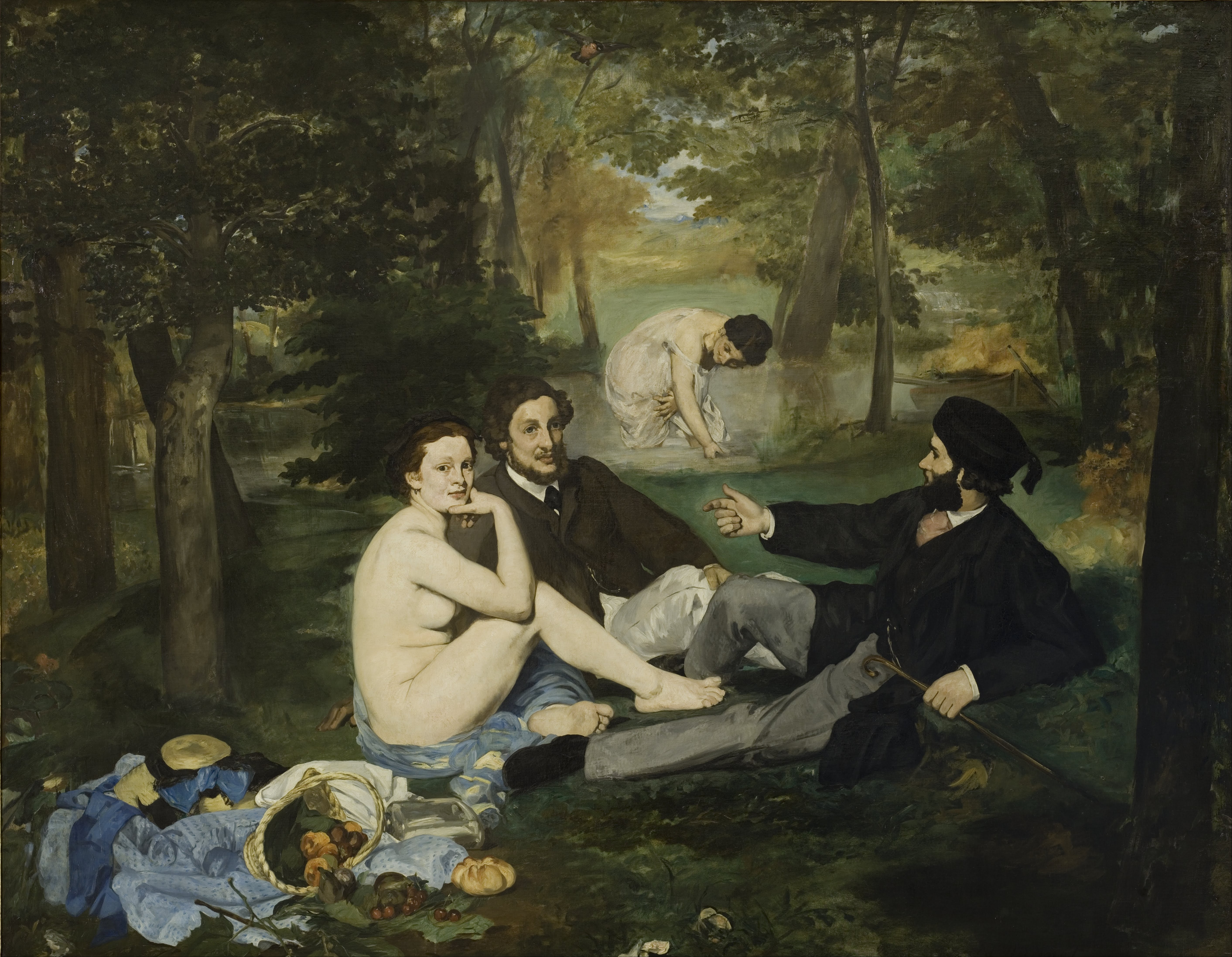






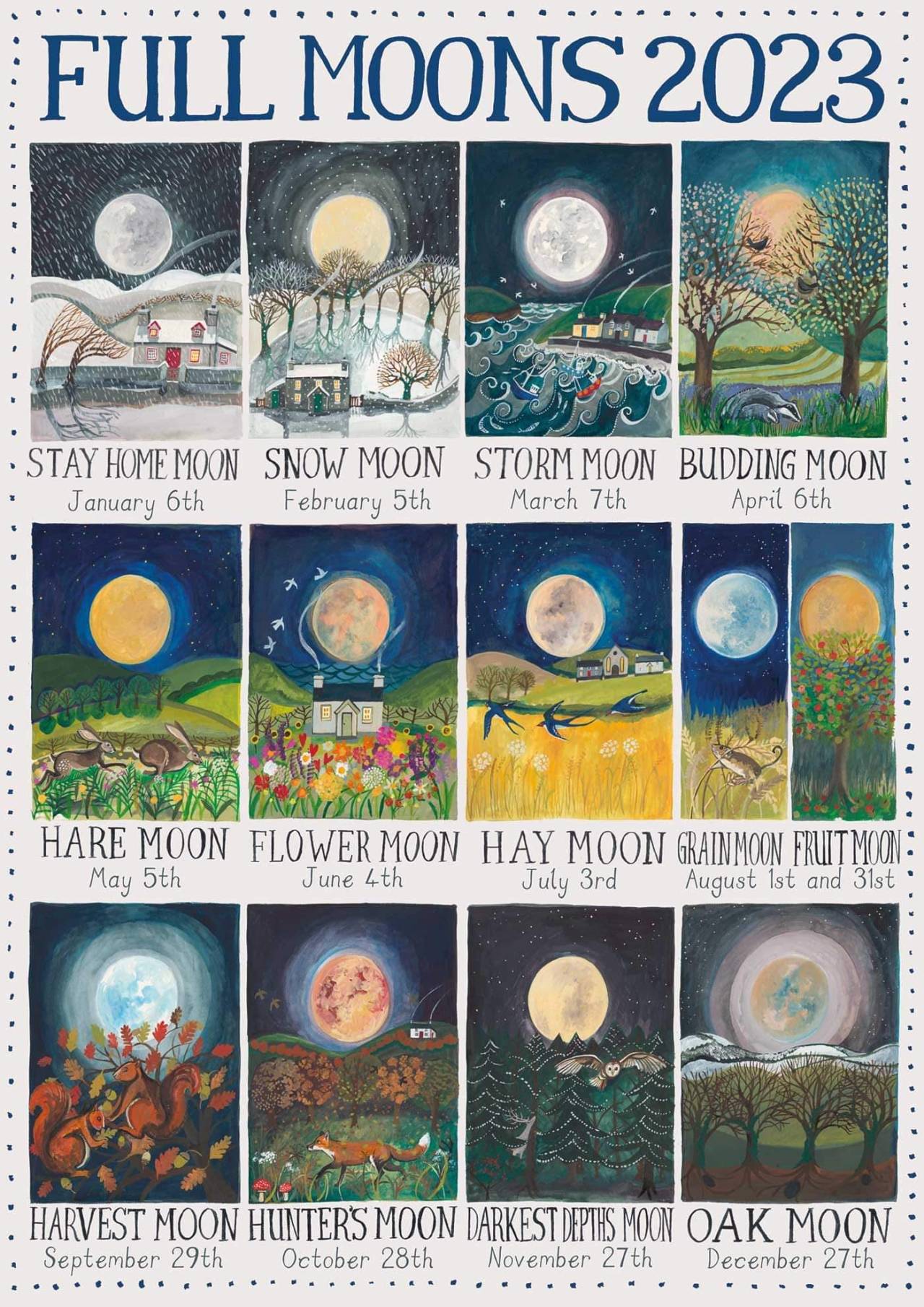
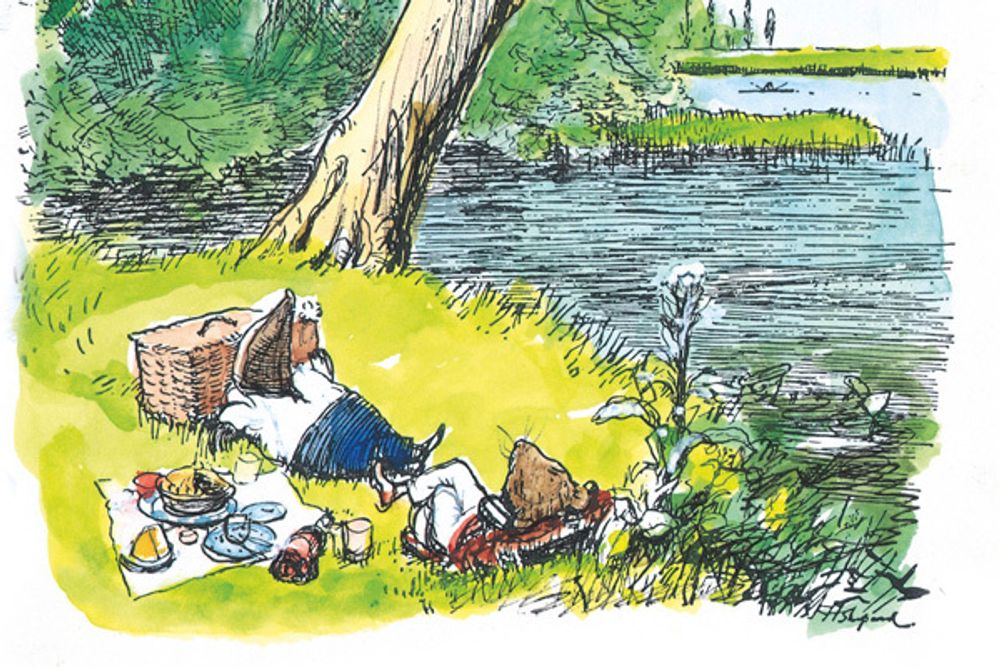



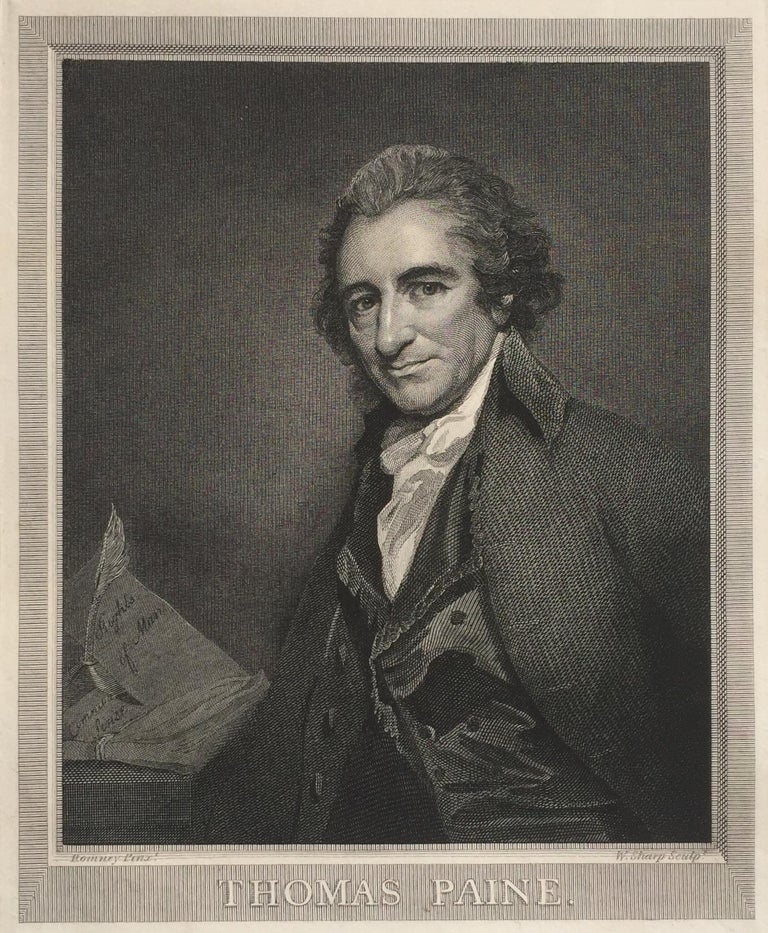
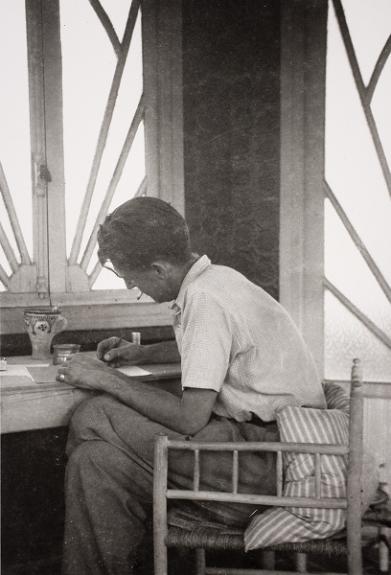






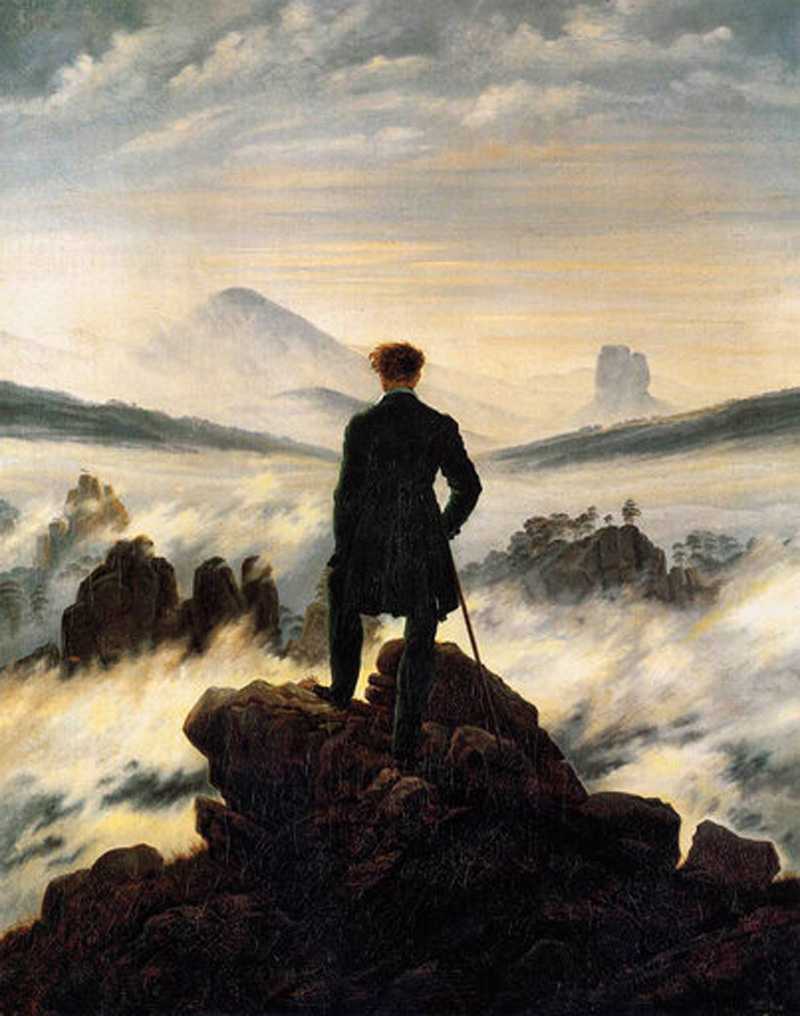

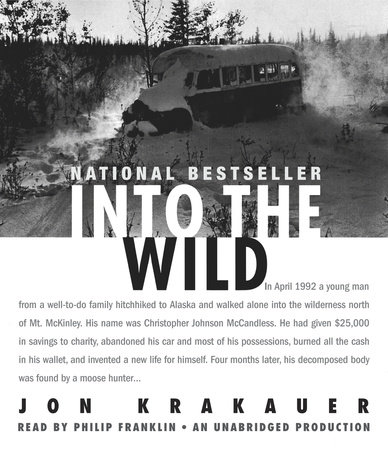

.jpg)




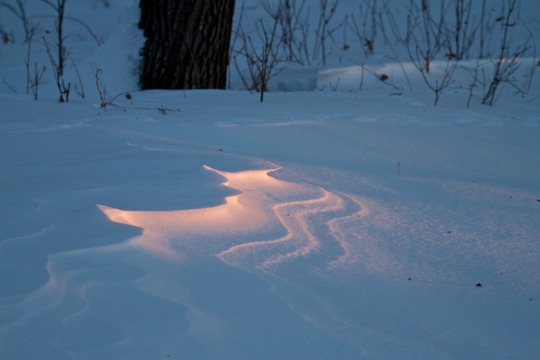



.jpg)

